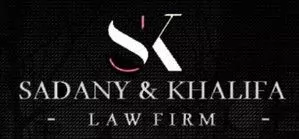As the "Trademark" embodies the real identification and recognition of any company's products, such a company is always keen to register its trademark in Egypt, by obtaining a special, unique, distinctive, and non-confusing trademark. As these companies seek legal protection for their brand to avoid any confusion with identical or similar brands, they select the trademarks that express their business purposes and products, to eventually attract customers to their respective products. To this end, trademark registration, being the legal way of fair competition among companies, is also intended to preserve the right of the company to maintain its trademark.
In this article, we will outline the provisions of trademark registration in Egypt and will clarify their nature, types, characteristics, registration methods, and restrictions, as stipulated in Law 82 of 2002 on the Protection of Intellectual Property Rights (IPRs).
First: Trademarks: Article 63 of Law 82 of 2002 defined "Trademarks" as follows:
"Trademark" refers to a sign capable of differentiating goods or services of one enterprise from those of other enterprises. It can be in the form of names with distinctive form, signatures, words, characters, numerals, designs, symbols, signposts, stamps, seals, drawings, engravings, a combination of distinctly formed colors, and any other combination of these elements if used, or meant to be used, to distinguish the products of a particular industry, agricultural, forest or mining venture or any goods, or to indicate the origin of products or goods, or their quality, category, guarantee, preparation process, or to indicate the provision of any service. all cases, the trademark shall be visually perceptible."
Second: Types of Trademarks that can be registered in Egypt and areas of use:
1. Manufacturing Mark: means a mark used by a manufacturer, to distinguish their products from those manufactured or sold by others.
2. Trademark: means a mark used by a merchant, to distinguish products re-sold by them, regardless of the supplier(s) of such products.
3. Service Mark: means a mark used by a service owner, to indicate the type and supplier(s) of this service.
Trademarks also include, but are not limited to: Event signs, geographic designation, private trademarks, media trademarks, and electronic trademarks.
Third: Trademark Registration Authority:
The application for trademark registration or amendment shall be submitted to the Trademarks Department of the Internal Trade Development Authority ("ITDA") by the concerned person or his representative holding a durable power of attorney executed on the designated form.
The trademark shall be registered for one or more categories or types of products produced, or intended to be produced, by the Applicant, under such requirements as set by Law. The use of such a trademark shall be limited to the registered category or type.
Fourth: Trademark Utilization Expiry; Eligibility for Trademark Registration
The trademark shall be owned by the registrant, provided that it shall be used during the five years following the registration unless it can be demonstrated that a third party is entitled to the priority right.
Whoever uses the trademark earlier than the registrant shall have the right to appeal the invalidity of the registration during the five years following the registration.
- Article (66) of the Law stipulates as follows:
Without prejudice to the provisions of international conventions in force in Egypt, any natural person or legal entity, whether Egyptian or foreign, which is subject to or has an active, registered office in a country or entity member in the World Trade Organization ("WTO") or a country which apply the Convention with Egypt on a reciprocal basis, shall have the right to apply for the registration of a trademark with the Department of Trade Registry in Egypt, along with all rights set under provisions of this Law on registration.
Fifth: Prohibition of Trademark Registration
Trademarks or any component thereof shall not be registered in the following events:
- The trademark lacks unique characteristics, is likely to mislead the public, or includes images, logos, or slogans of third parties without the authorization thereof;
- The trademark breaches public order and public morals; or
- The trademark contains public emblems, flags, symbols of the state or other states, or religious symbols.
Sixth: Trademark Features: -
- Unique Features: The trademark shall be unique, including its shape and color; innovative and with a distinctive visual and creative appearance, with which a merchant, manufacturer, or service provider can attract customers and suppliers for their offered product or service. It shall be distinctive from other brands with the same product or service, ensuring that it will not mislead or cause confusion to the public.
- Compliance: the trademark shall not breach public order or public morals, and shall not contain any religious symbols or slogans which may violate the law.
The content of this article is intended to provide a general guide to the subject matter. Specialist advice should be sought about your specific circumstances.

